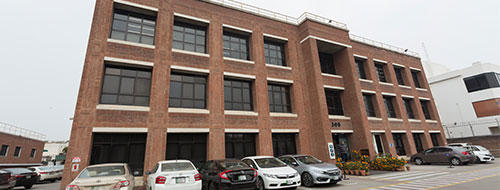ISLAMABAD: Nestlé Pakistan won two top awards in the categories of Gender Equity and Agri Tech & Food Security at the Sustainability Awards hosted by Sustainable Policy Development Institute (SDPI).
Nestlé Pakistan’s recognition in the two categories were for its Creating Shared Value (CSV) initiatives, the Nestlé-BISP Rural Women Sales Program that has supported 2800 rural women to achieve financial empowerment with the ambition to reach 5000 women by 2025; and Smart Soil Moisture Sensors on 548 acres, which assist farmers detect the sub-soil moisture level, helping Nestlé achieve its Waters Pledge of regenerating the water used by its Waters Business to have a net positive impact by 2025.
The awards were aimed at honoring exemplary efforts and achievements in the corporate sector and civil society organizations, “recognizing and celebrating sustainability achievements vital in fostering positive change and inspiring a collective commitment towards a sustainable future”. The winners were selected by an independent panel of esteemed experts and thought leaders who evaluated the nominated cases studies.
SDPI hosted the 26th Sustainable Development Conference in Islamabad, where Nestlé with SDPI also jointly hosted a plenary on Climate Change & Food Security: Does regenerative agriculture offer hope in despair, under this year’s theme Light at the End of the Tunnel.
Talking at the event, Sheikh Waqar Ahmad, Head of Corporate Affairs & Sustainability, Nestlé Pakistan said, “We are delighted to be acknowledged for our efforts towards communities and the planet. We are also accelerating our efforts to reduce GHG emissions, and we believe we can address this challenge by transforming the way we source ingredients by scaling up regenerative agriculture. Regenerative Agriculture is one of our focus areas to reach our Net Zero commitment by 2050. Nestlé’s approach is centered around universal agronomical principles that help protect and restore natural resources – primarily soil, as well as water and biodiversity,” he added.
Stressing on climate change’s impact, Dr. Adil Najam, President WWF International, highlighted that, “Climate change is no longer a problem for the future – it is here, and we are suffering from its effects already. On January 1, 2024, we will see that 2023 was the hottest year on record. We need to act now, and regenerative agriculture offers us hope in these times of despair.”
Narrating her experience from her native country Vietnam, Van Nguyen, Deputy Representative, UNDP Pakistan said, “Due to three yearly crop cycles for rice, soil health has significantly deteriorated in Vietnam. We need to come up with solutions that regenerate nature while making business sense. This cannot be achieved without the support of the private sector,” she stressed while appreciating the role of companies like Nestlé that have taken the lead on this and put their size and scale to work.
Dr. Abid Suleri, Executive Director, SDPI, moderated the discussion. Dr. Masoud Al-Marri Director General Islamic Organization of Food Security discussed the importance of regenerative development for Islamic countries, asking Organisation of Islamic Cooperation (OIC) members to leverage their individual strengths in order to help all members in order to improve food security.
For further information, please contact:
Muhammad Rahat Hussain
Corporate Manager Public Affairs & Media Relations
[email protected]
PDF news:

